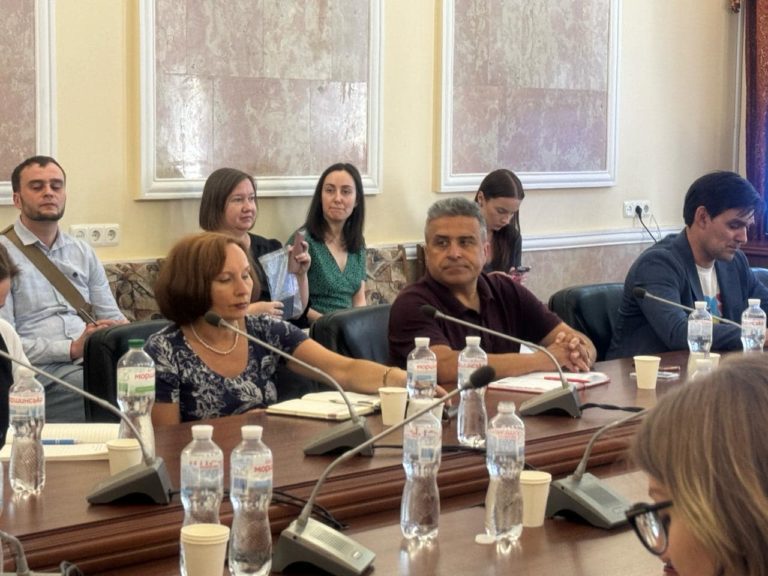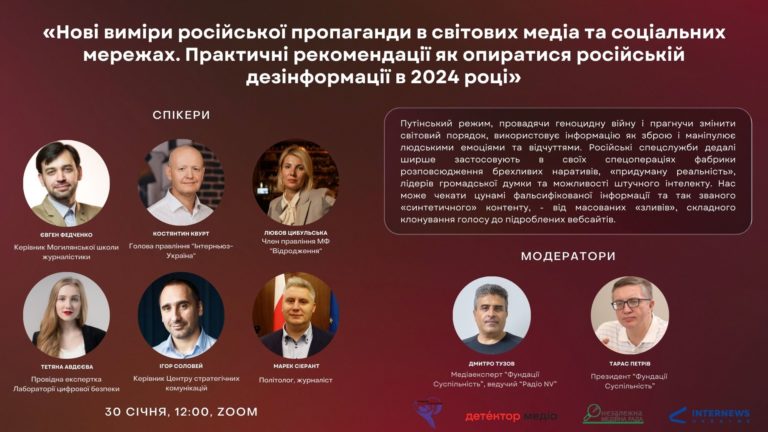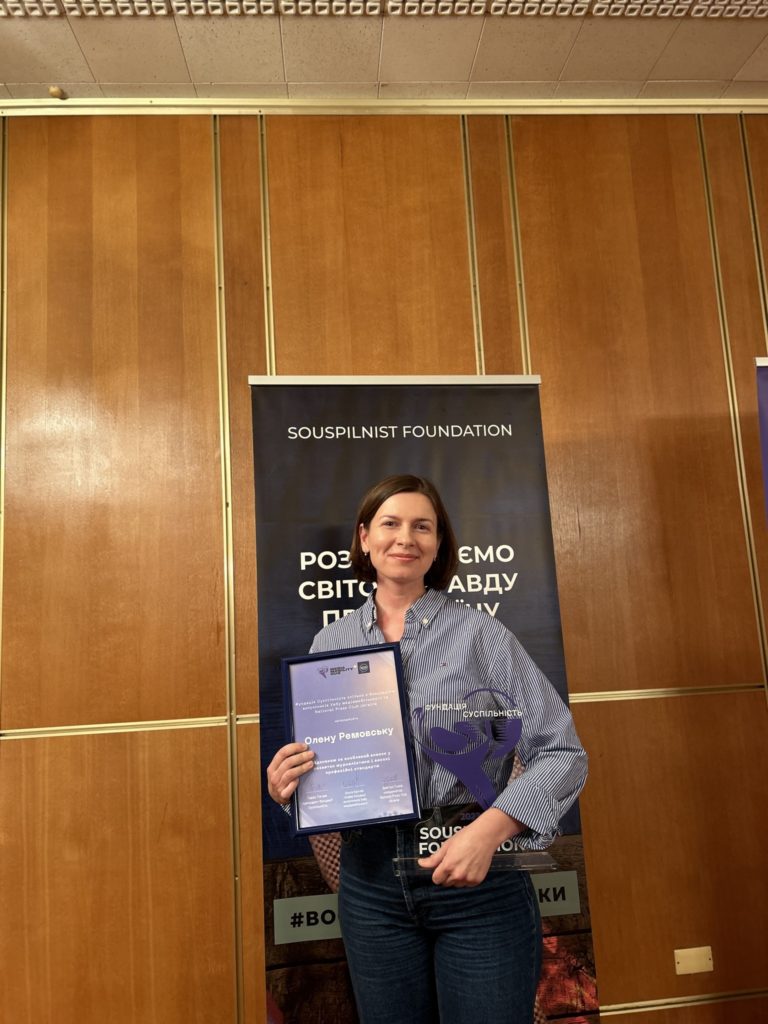Dmytro Tuzov, NV Radio host and Souspilnist Foundation media expert opened the second day of the #wartimemedichallenges 2023 conference.
The speaker discussed the challenges currently facing journalism.
“Unfortunately, this is our war, and we need to be aware of it. The responsibility for primary coverage lies with the media. Western media work with entire teams, including drivers, translators, photographers – a whole minibus of people.”
In Ukraine, a journalist should be able to do everything, and it can be quite interesting. With a tripod and a microphone, you can work in any circumstances. Of course, there are much more sophisticated devices, but even basic tools like a smartphone can help create a brilliant product.”
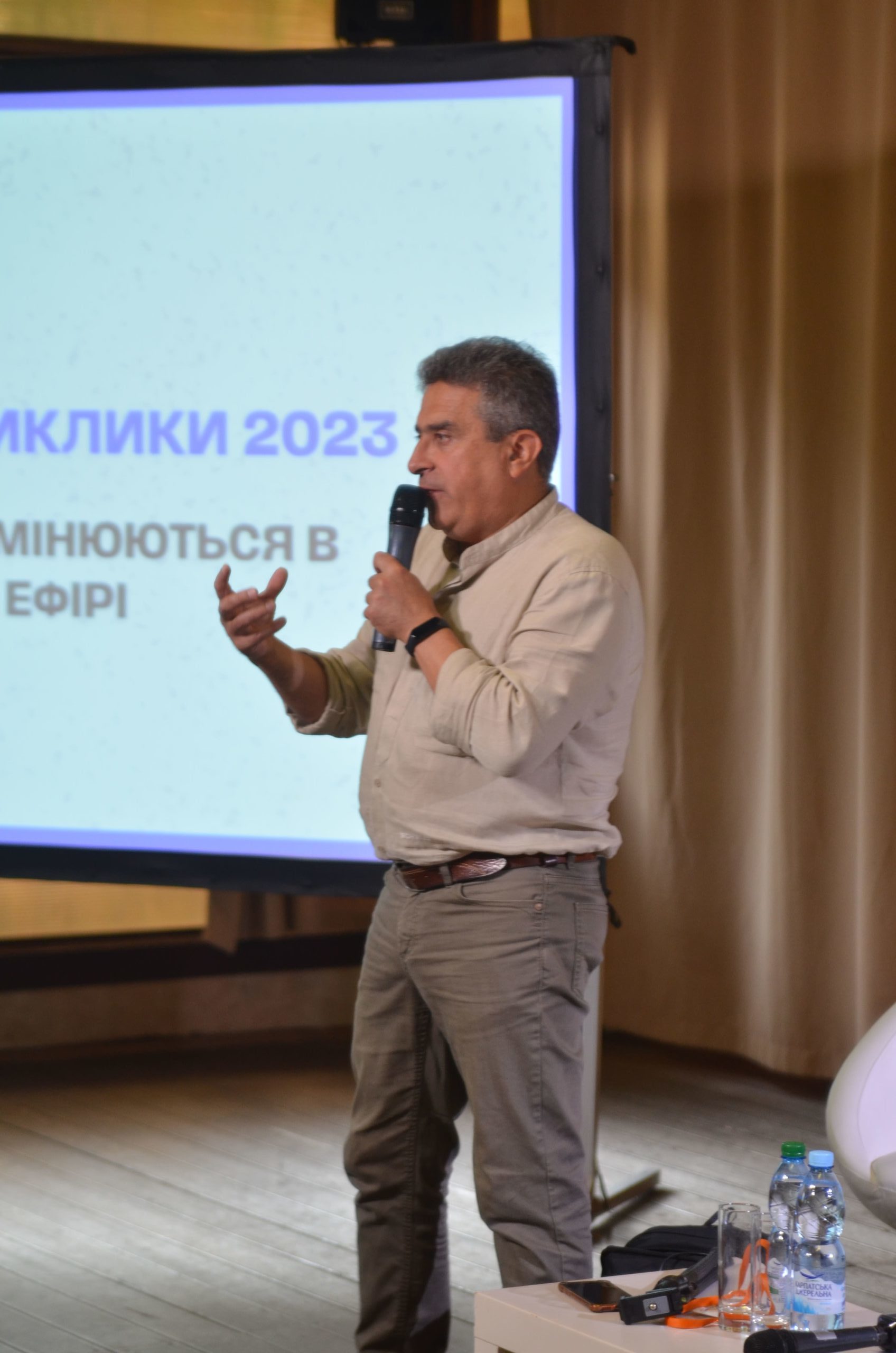
The discussion then touched on the important topic of not being afraid to venture beyond journalism into related fields, led by Darya Yurovska, an expert in IT technologies. At one point, Darya took a significant risk and decided to make a radical career change, but her journalism skills proved to be valuable and played a significant role in her success.
“In journalism, you develop skills that will come in handy if you decide to make a professional turn and switch to another profession,” she emphasized.
The speaker emphasized that a person should be “universal,” so to speak, and she said, “Business is looking for individuals who can evaluate their work based on results rather than the amount of effort put in, who can work independently like a one-person orchestra and collaborate effectively in a team.”
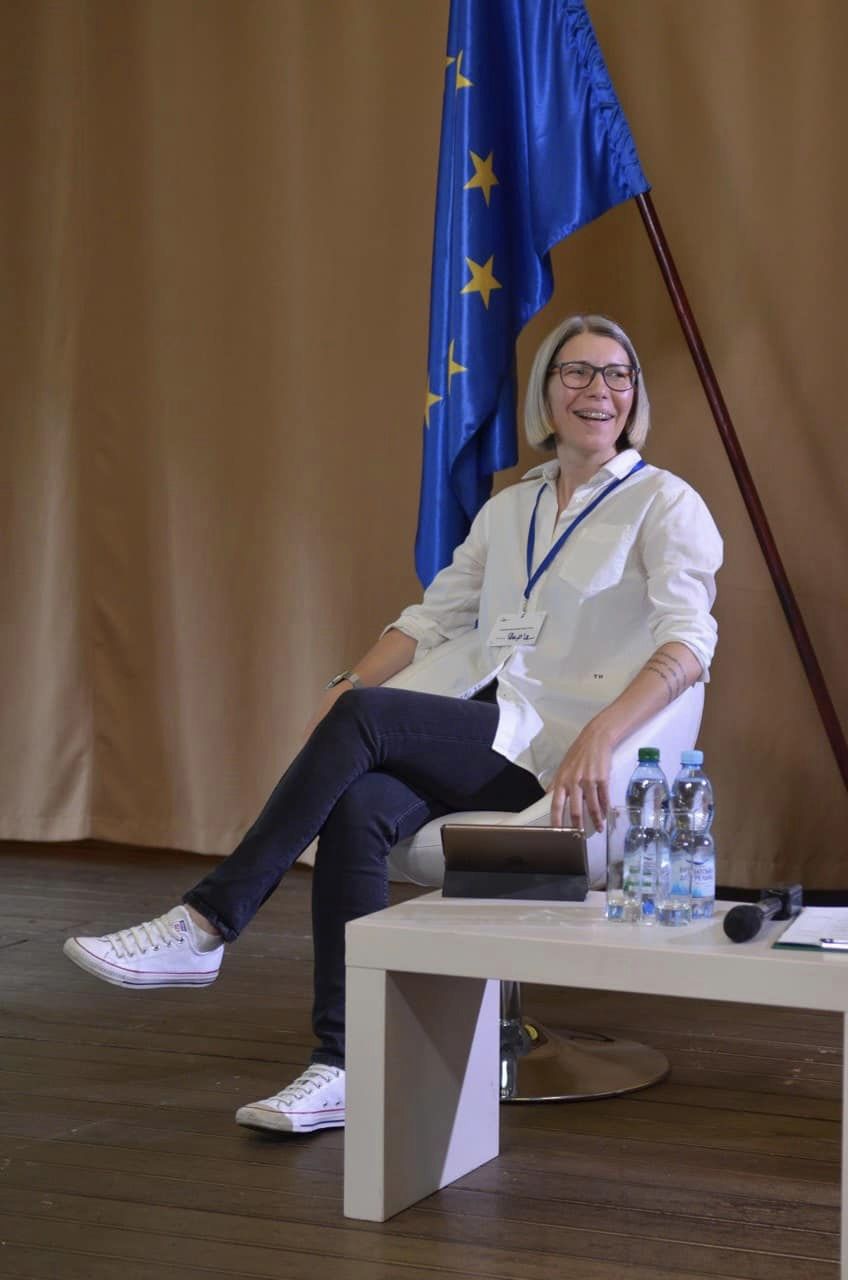
The next speaker was Tetiana Avdieieva, an expert in artificial intelligence, media literacy, and advocacy for legislative changes. A lawyer at the Digital Security Laboratory, she also addressed the topic of artificial intelligence in media work.
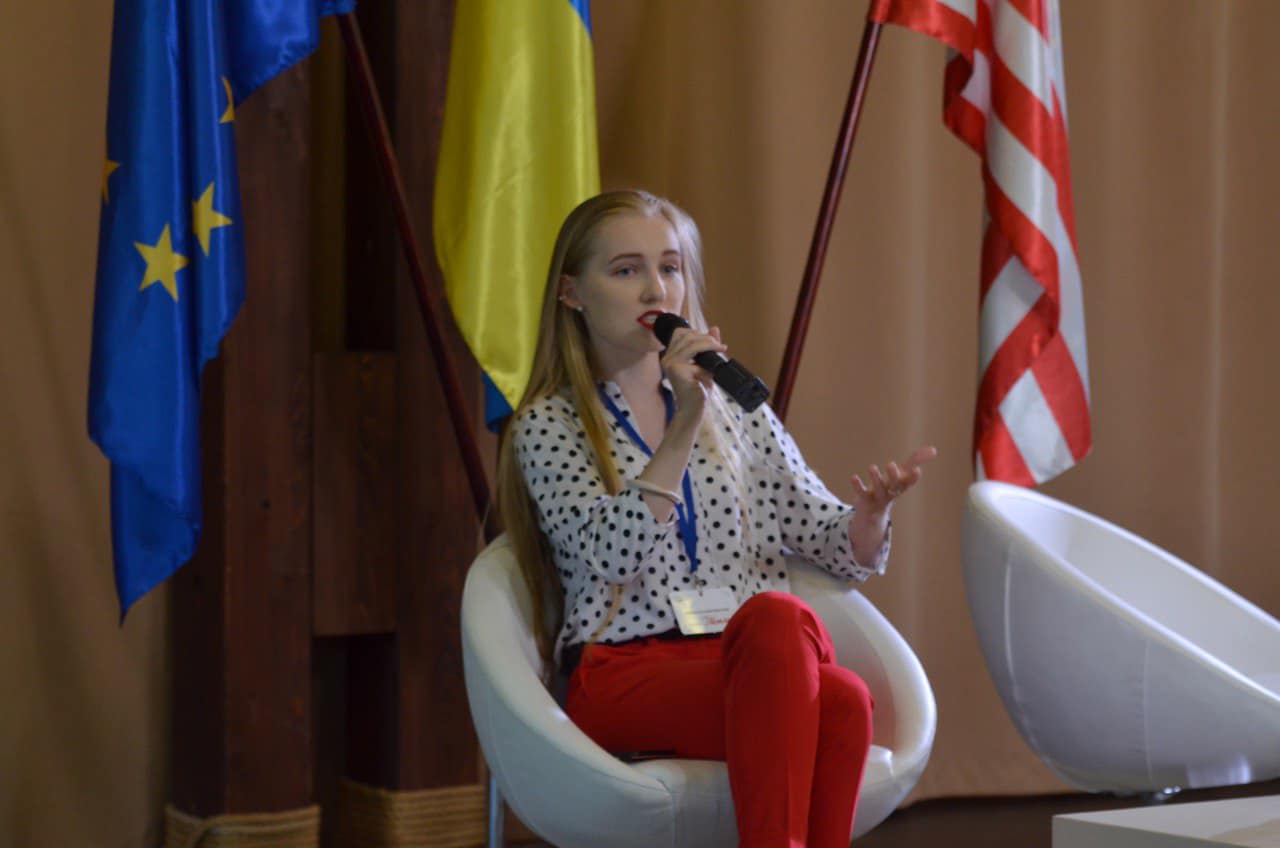
The participants discussed the issue of countering fakes, deepfakes, and disinformation:
“What to do when encountering deepfakes: Use technical authenticity verification tools for videos (such as Microsoft Video Authenticator), take practical steps to verify video authenticity (checking the blinking frequency, expressions, and gestures, examining the background, and assessing symmetry of accessories and unnatural clothing folds), and search for the original video (if you have a clip).
When verifying videos, pay attention to movement. The more unnatural movement you see, the more doubts the video should raise. If you are in doubt about the authenticity of a person during a Zoom call, ask them to turn their face to the side. This can help verify whether a face-changing mask has been applied.”
Tetiana concluded with a pertinent statement: “If the verification process takes a similar amount of time as creating the piece itself, is there a point in using AI?”
The next topic was “Media Work in Eastern Regions,” using the example of the experience of Free Radio, presented by its director, Anastasiia Shybiko.
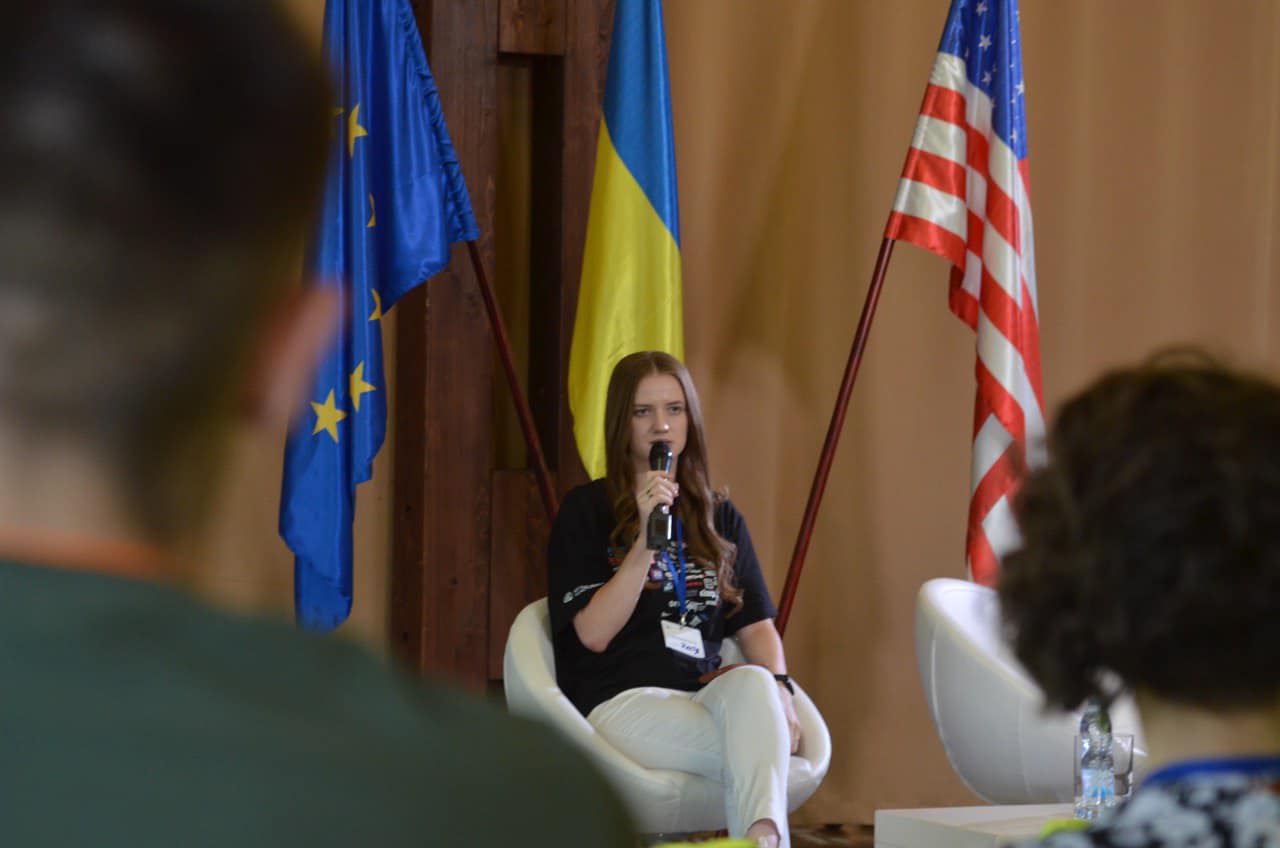
“Creating media should start with a mission. What exactly do we want to convey to people?” the speaker said about starting a radio station from scratch.
“We understand that if there is an occupation, we won’t be the radio of Poltava, but we will remain the radio of the Donetsk region. We will stand with the people until the end, as this is important,” Anastasiia concluded.
The next guest at the conference was Olesiia Vakulenko, the host of the interregional project “Suspilne. Resistance” and the “Crimean Question” on local channels of Suspilne, who spoke about Crimea.
The speaker emphasized that despite the fact that it is currently an occupied territory and there is no opportunity to broadcast from those areas, it should not prevent reporting on Crimea. “You can make reports about Crimea without being physically present in those territories. In our time, you can obtain information if you know where to look.”
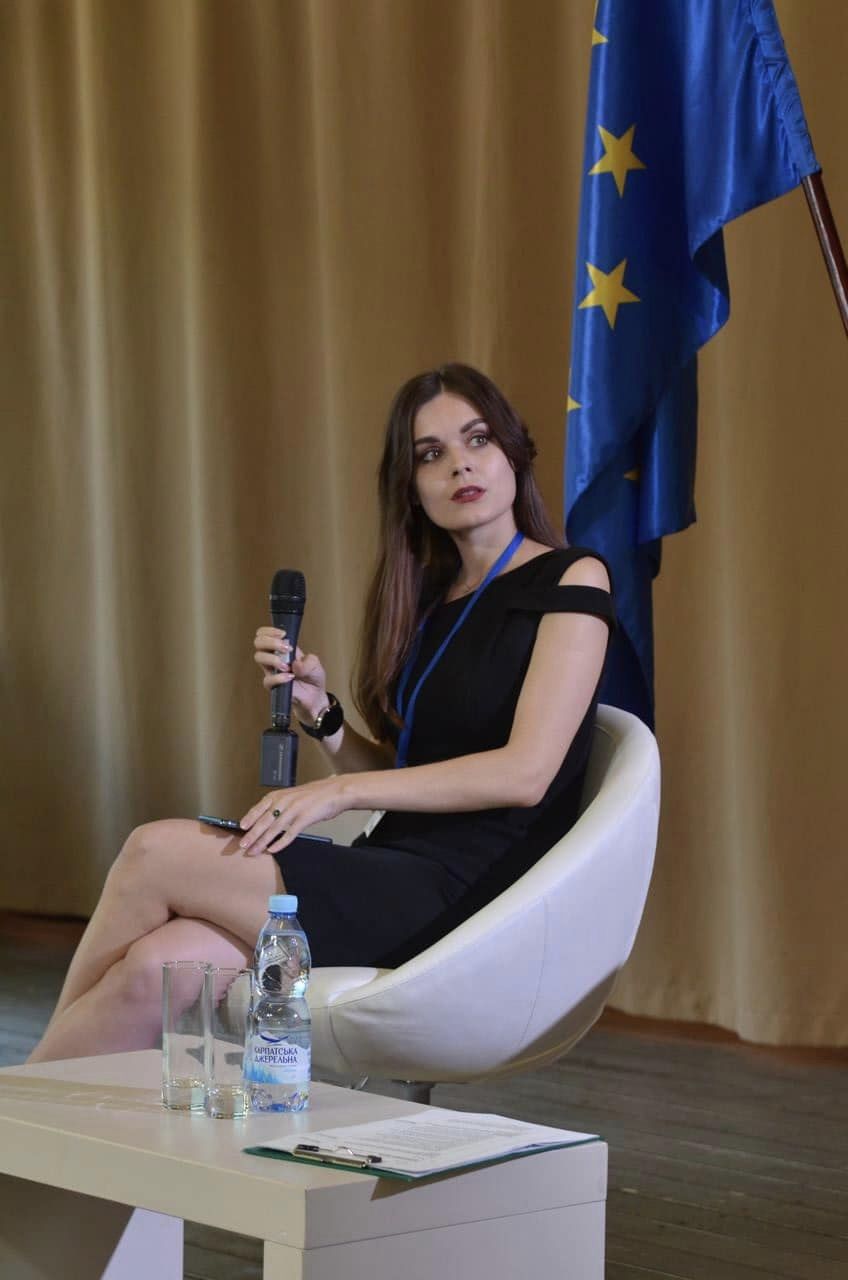
“The topic of Crimea is work both from within and from outside. It is important to remind Ukrainians that Crimea is Ukraine. It is important to remind the international community that Crimea is Ukraine, and also to remind those in Crimea that we remember them,” she concluded.
Ihor Rozkladai, the Deputy Director of CEDEM, addressed the topic of tackling challenges when dealing with industrial giants.
“At present, Russian disinformation is coming in waves. The latest wave started two weeks ago and operates on several fronts: standard disinformation, urging people to watch certain videos that are actually phishing attempts.”
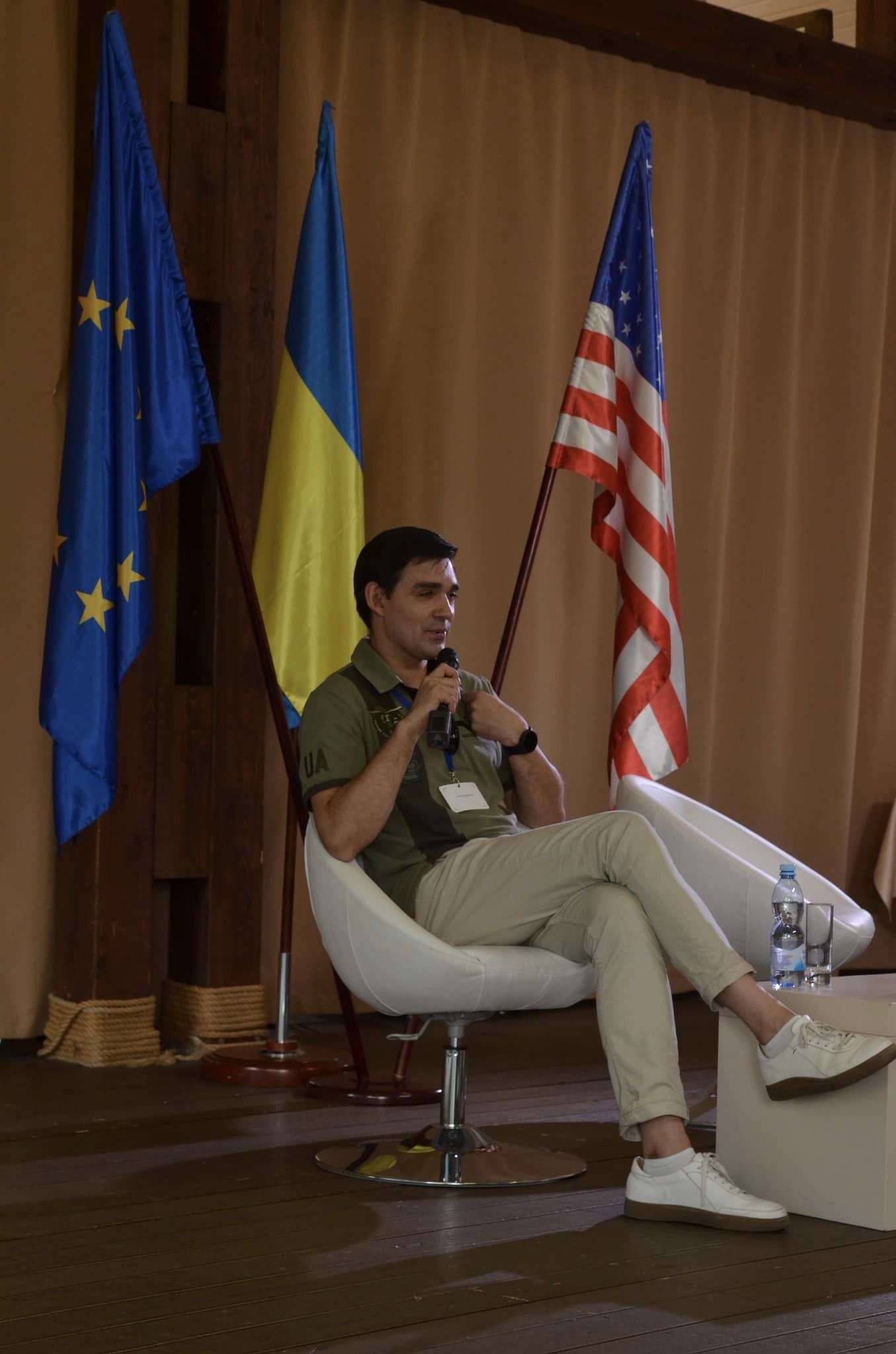
Ihor Rozkladai also gave some advice on the proper use of certain platforms: “I understand that people won’t delete Telegram, so my advice is to be mindful of what you subscribe to and not react to various provocations. But I wouldn’t recommend communicating there.”
Olha Kruhlii, head of the communications department at the online publication “Svidomi,” discussed stereotypes and development in turbulent conditions.
“Stereotypes and turbulent conditions are a good description of our publication’s work. Development often occurs not quickly, but the main thing is that it’s continuous. We transformed from an Instagram page that provided 5 news pieces a day into a full-fledged media outlet that worked almost around the clock at the beginning of the full-scale war.
For a long time, people saw us as a youth page for young people, but we grew, our audience grew, and the quality of our materials improved. So, we didn’t want to be perceived that way. We needed to raise our voices twice as loud to make it clear that we are not just a page but a serious media outlet.”
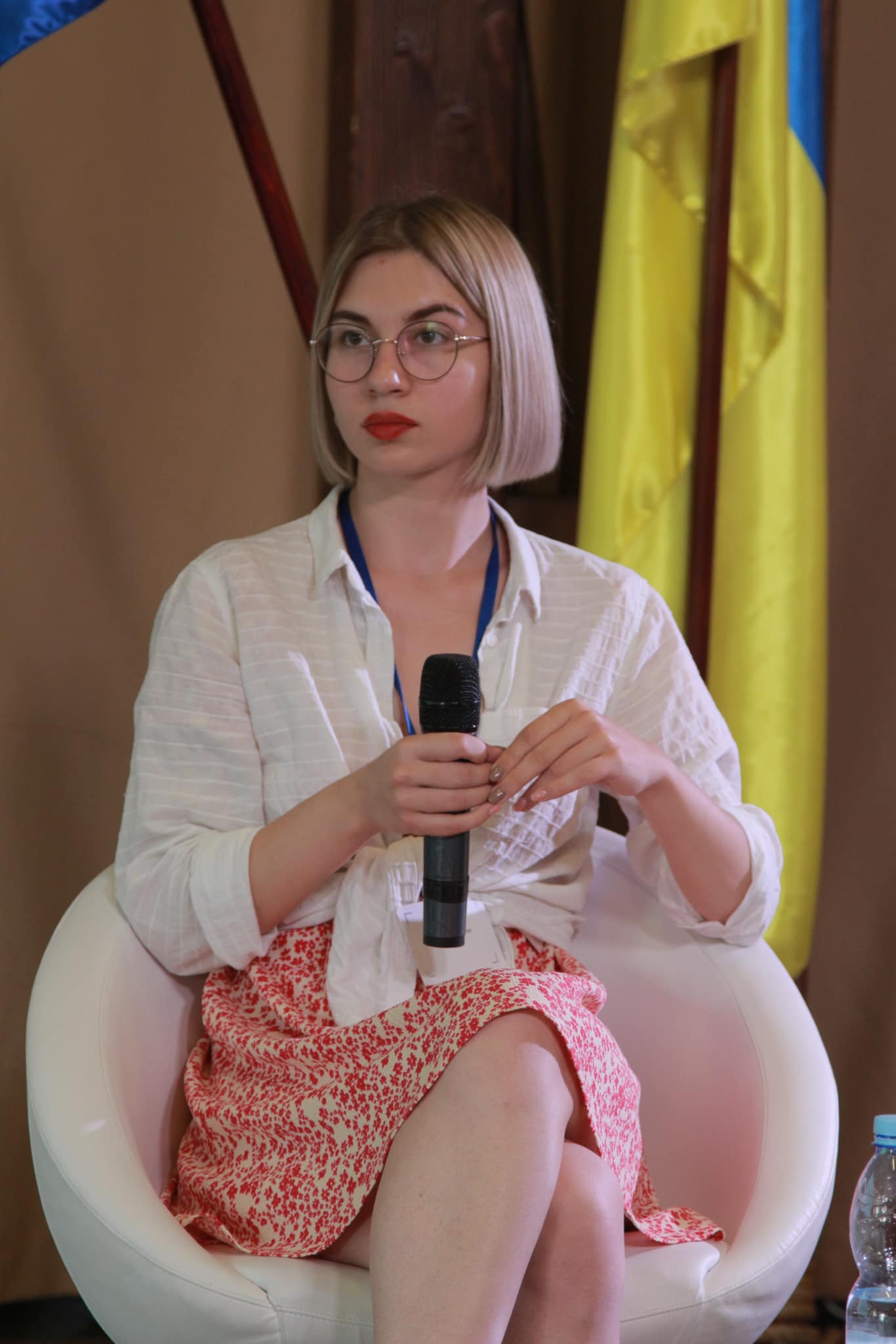
Olha Kruhlii noted that the audience should be discerning. “Real media won’t use the ‘bavovna’ meme too much; they will provide information as quickly as official sources, and they will adhere to ethical standards.
We have a watchdog – our audience, which has become very demanding. We want to be close to them, so they allow themselves to be frank with us, point out mistakes, which we are ready to correct,” emphasized Olha.
“You have to be very determined and understand that journalism is complex; it requires an incredible amount of work and compromises with your desires,” concluded the speaker.
The final discussion panel at #Wartimechallenges2023 was dedicated to new communication tools in wartime. Inha Vyshnevska, the head of the WeAreUkraine.info project and co-founder of CSO Resilient Ukraine (One Philosophy).
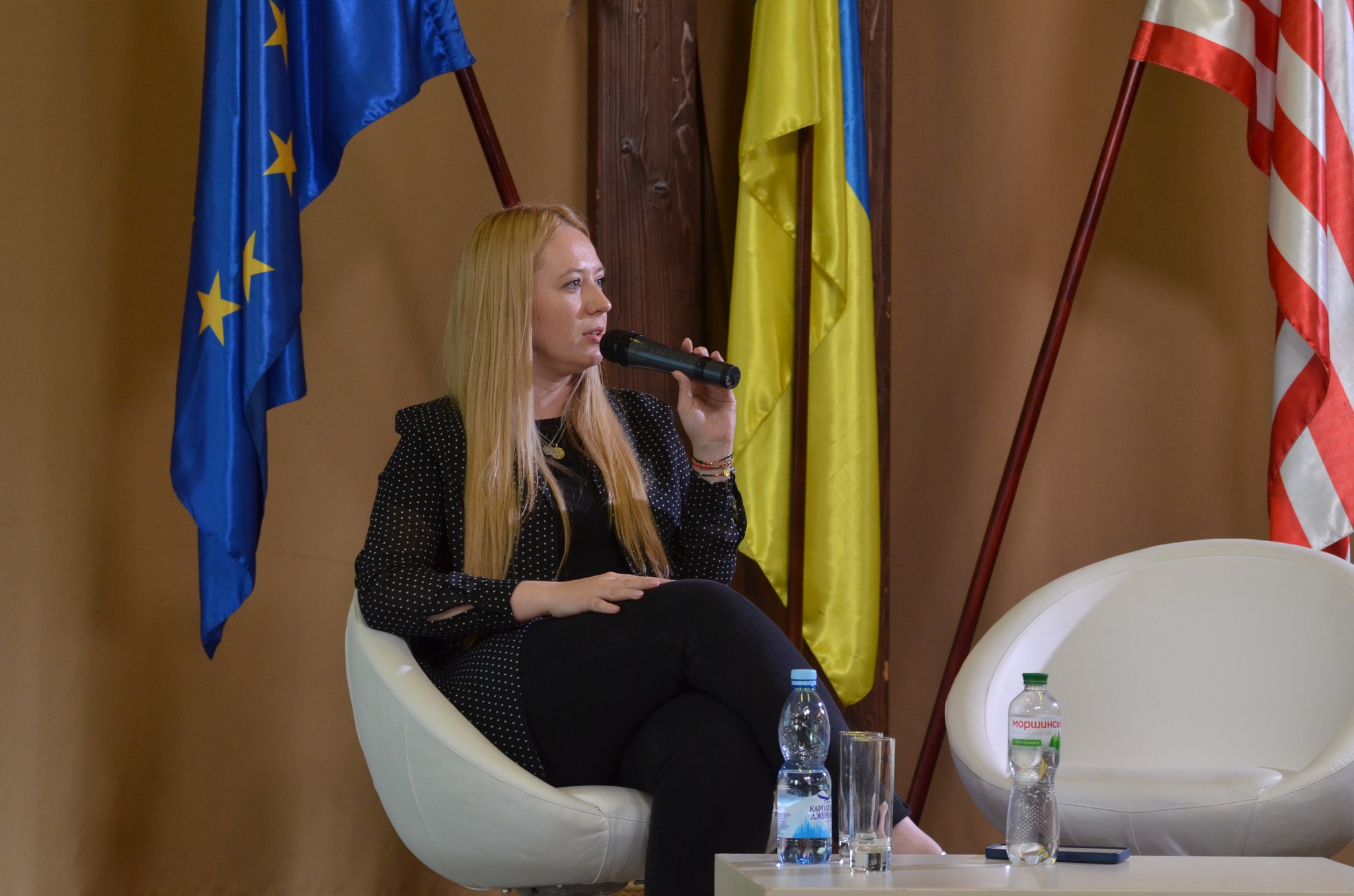
Due to the war, it may seem like there are more challenges facing journalists, but the speaker asserts, “The challenges haven’t increased. It’s just that they have become more noticeable in the context of a full-scale invasion because it now affects a larger number of people. When we win, disinformation won’t disappear. Ukraine needs to promote its narratives right now,” concluded Inha.
The speaker also explained why journalists should be cautious when traveling to special regions.
Olena Sivash, director of Souspilnist Academy.
“Our goal was to support journalists when there were issues with insurance,” she emphasized.
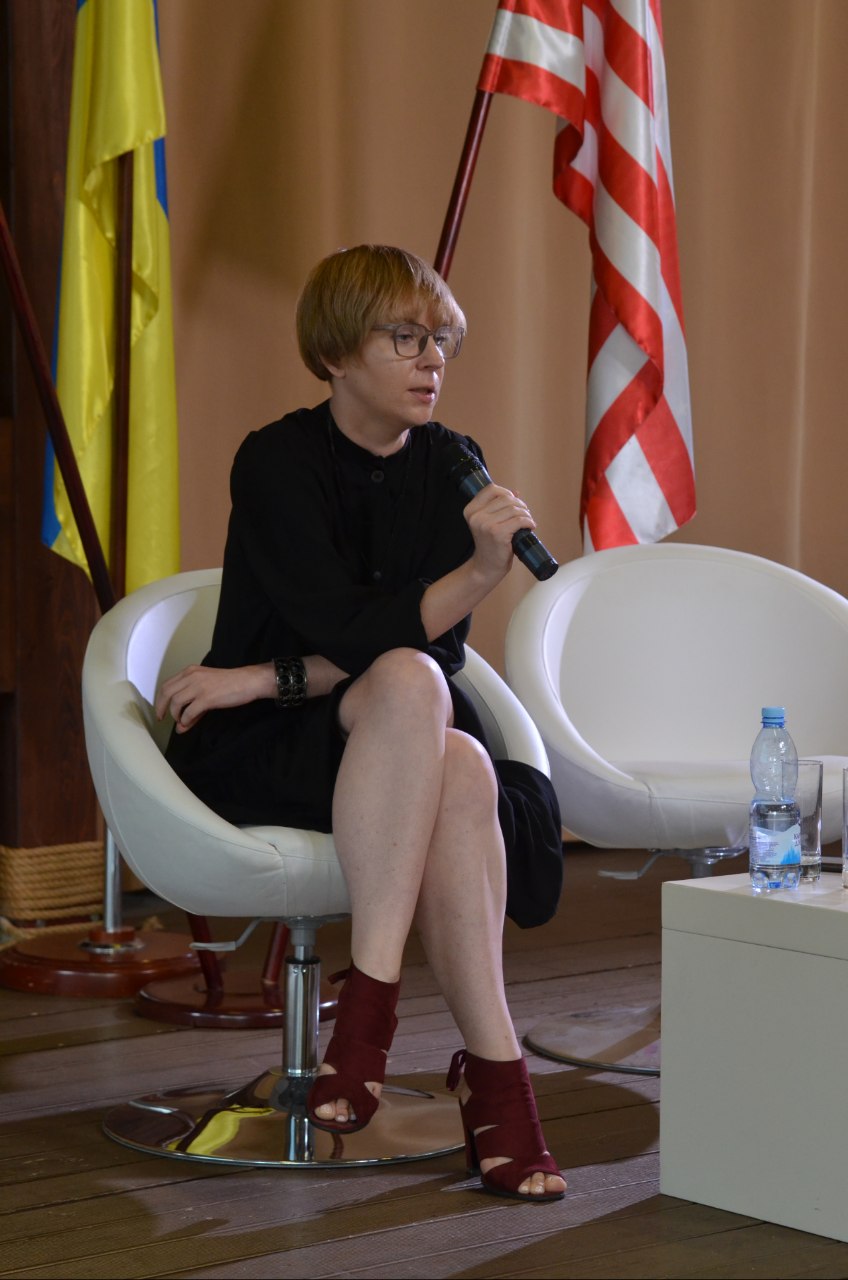
Andrii Sydorenko, head of the Resilience Hub project and the Mental Support for Media program, along with Anastasiia Nizhnik, addressed the topic of the psychological resilience of journalists and media teams.
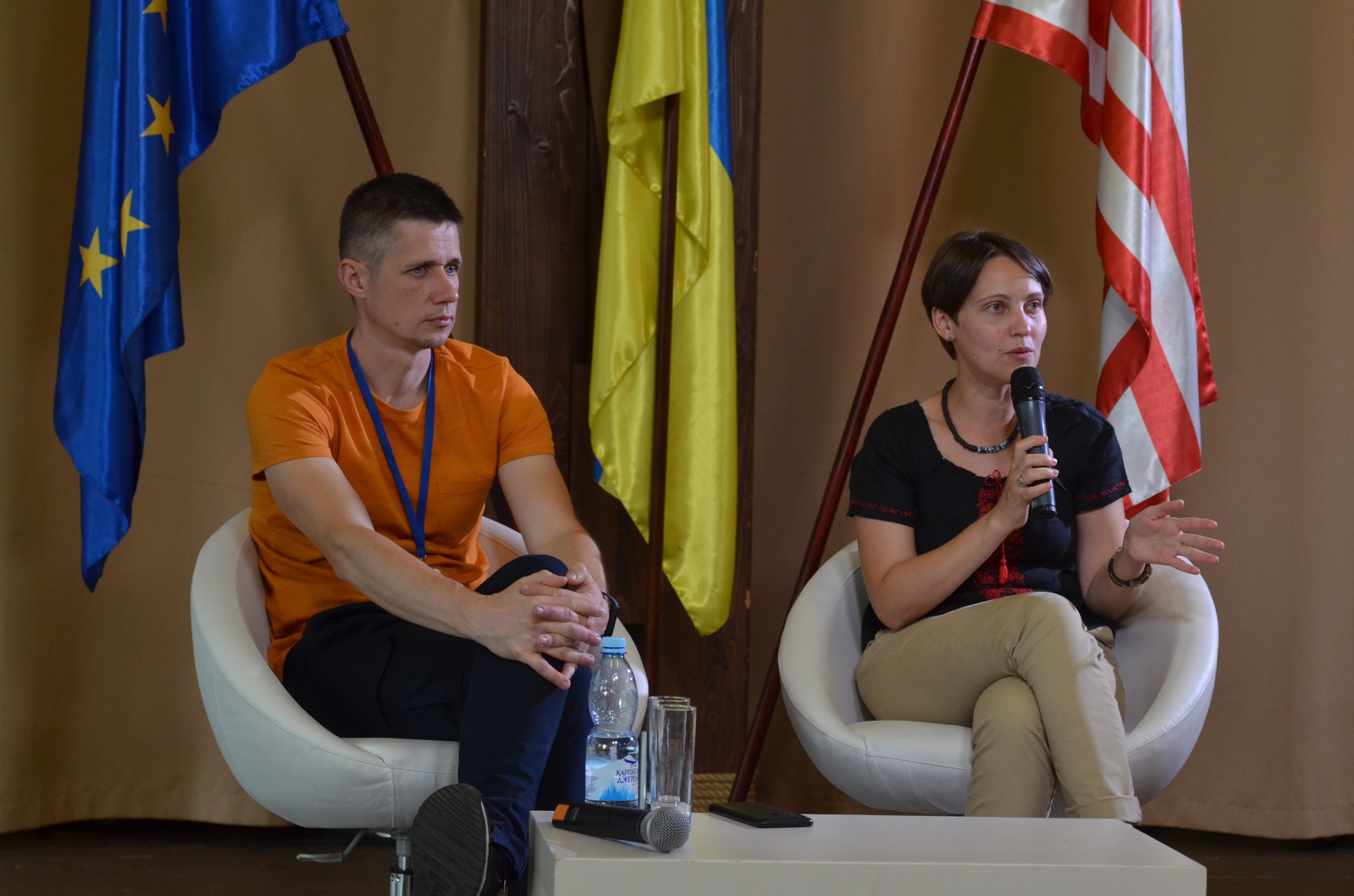
Andrii Sydorenko highlighted the importance and complexity of the journalism profession. “Journalists give people the opportunity to overcome helplessness and regain a sense of control through access to information. Journalists accompany those who have experienced terrible events, process traumatic experiences, help create information memorials for these individuals, and assist in documenting war crimes. Over 90% of journalists have high levels of burnout or depression, and 38% experience painful sensations when recalling traumatic events they have encountered.”
“Journalists are currently in a triangle: they must take care of their psychological health, their readers, and those they interview,” emphasized Andrii.
Anastasiya Nizhnik focused on an individual’s internal state and provided many tips for maintaining one’s psychological well-being: “I would really like us not to pathologize states. Tears are not bad; they are normal, and we need to allow them to come out. It’s one way of experiencing emotions.”
“We cannot endure so many events simultaneously, so sometimes we need to disconnect.
It’s normal not to be okay in the conditions we are in. But if something unclear is happening to you for a long time, more than 2 weeks, then it’s a signal that you should see a specialist.
Let those around you know that you need support.
It’s important not to be alone with the problem and not to be ashamed to seek help.”
“It’s very important to know what can help improve your state. Being a friend to yourself is rule number 1,” Anastasiya concluded the last practical panel.
